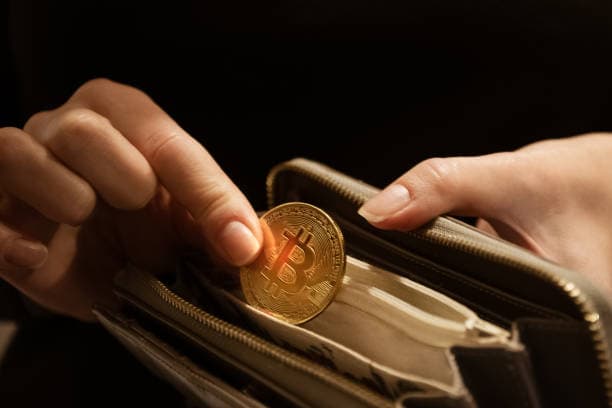What is the difference between Bitcoin Cash and Bitcoin?
Hello, I'm Mike, and today I'm here to talk about the difference between Bitcoin Cash (BCH) and Bitcoin (BTC). Although these two cryptocurrencies are similar in name, they actually have different technical backgrounds and development paths. Understanding their differences is an important step for those who want to enter the cryptocurrency market. In this article, we will clearly explain the differences between Bitcoin Cash and Bitcoin in terms of transaction speed, fees, community support, etc., so that you can make a more informed investment decision.

Bitcoin Cash and the Origin of Bitcoin
Bitcoin (BTC) is the world's first cryptocurrency, invented by Satoshi Nakamoto in 2008. As the originator of digital currency, Bitcoin is dedicated to solving the problem of decentralized payments and was successfully launched in 2009. Due to its blockchain design and decentralized nature, Bitcoin is considered "digital gold" and is widely used as a store of value and a medium of exchange.
As usage of the Bitcoin network has increased, transaction speeds and transaction fees have risen, which has led some to look for improvements.In 2017, due to controversy over Bitcoin's scalability issues, the Bitcoin community undertook a Hard Fork, which ultimately led to the birth of Bitcoin Cash (BCH). The main improvement of Bitcoin Cash is the expansion of the block size from 1MB to 8MB, which aims to improve the scalability of the Bitcoin network by increasing transaction throughput and lowering transaction fees.
Transaction Speed and Transaction Fees: BTC vs.
One of the most direct differences is the speed of transactions and fees. Since the block size of the Bitcoin blockchain is only 1MB, when the network is congested, the transaction processing time will be lengthened and the handling fee will also increase. Especially during periods of high price volatility, Bitcoin transaction fees can be very high, which is a challenge for users.
Bitcoin cash solves this problem relatively well. By increasing the block size to 8MB, Bitcoin Cash is able to handle more transactions and reduce network congestion. As a result, Bitcoin cash transactions are usually faster and have lower fees. Bitcoin Cash may be a better choice for users who frequently make small payments or high-frequency transactions.
For example: If you use Bitcoin to make a payment today during a congested hour, you may have to pay transaction fees that are several times higher than normal, and you may have to wait for hours for the transaction to be confirmed. Bitcoin cash, by contrast, has lower transaction fees in the same situation and can often be used to complete transactions much faster.

Blockchain Design Differences Between Bitcoin Cash and Bitcoin
There is a fundamental difference between Bitcoin and Bitcoin Cash in terms of blockchain design. Bitcoin uses smaller blocks (1MB) and its block generation time is about 10 minutes. This means that Bitcoin has a limited number of transactions processed per second (TPS, transactions per second), which is about 7 transactions.
Bitcoin Cash, on the other hand, has greatly increased the number of transactions that can be processed per block by increasing the block size to 8MB. This allows Bitcoin Cash to handle many more transactions per second than Bitcoin, support more users and transactions, and reduce network congestion during peak trading hours.
The Bitcoin cash community and developers believe that block scaling is the best way to solve the scalability problem of Bitcoin. They emphasize that Bitcoin cash should be used primarily as a "payment tool" rather than a simple store of value.
Key Points Review:
- Bitcoin has a block size of 1MB, slower processing speed and higher transaction fees.
- Bitcoin Cash has a block size of 8MB, faster trading speeds and lower fees.
Market Acceptance and Community Support
Despite the different technical backgrounds of Bitcoin Cash and Bitcoin, Bitcoin continues to dominate the global marketplace and has greater community support and more business partners. Considered digital gold, Bitcoin is highly regarded by many institutional investors and traditional financial institutions. It has become one of the most popular cryptocurrencies in the world and is widely accepted by many merchants and exchanges.
In contrast, Bitcoin Cash has taken a more tortuous path. Although it has obvious advantages in terms of transaction speed and handling fees, there is relatively little community support for Bitcoin Cash due to its divergence from Bitcoin. This makes the application of Bitcoin Cash relatively limited. Although some merchants and platforms also accept Bitcoin Cash, its market penetration is still a bit short of that of Bitcoin.
Example:
According to some market reports, Bitcoin cash, although it once saw rapid growth in 2017, its market price and trading volume did not continue to grow in the following years. Bitcoin remains the most influential cryptocurrency in the global market.
Bitcoin and Bitcoin Cash Investment Value Analysis
For investors, the value performance and investment outlook of Bitcoin and Bitcoin cash are significantly different. The value of Bitcoin is better reflected in its scarcity and recognition as "digital gold". Many long-term investors choose to hold Bitcoin as a hedge against inflation or as a store of value.
Bitcoin Cash is viewed more as an everyday payment tool and is particularly attractive to users who value transaction costs and speed. Despite its lower market value and popularity, Bitcoin Cash is still a potential payment solution with lower transaction fees and faster transaction confirmation times.
Investment Advice:
- If you value Bitcoin's long-term value storage capabilities, Bitcoin may be a more suitable choice.
- If you're more concerned about low fees and faster trade confirmations, Bitcoin Cash may be the way to go.
Frequently Asked Questions Q&A
Q1: How does the difference in block size between Bitcoin Cash and Bitcoin actually affect trading?
A1: Bitcoin Cash's block size is 8 times larger than Bitcoin's, which allows Bitcoin Cash to handle more transactions, resulting in shorter transaction confirmation times and lower handling fees in times of network congestion.
Q2: Why is there a hard fork in Bitcoin cash?
A2: The hard fork of Bitcoin Cash stems from a controversy in the Bitcoin community over the issue of scaling. Supporters of Bitcoin Cash believe that increasing the block size is the best way to increase the scalability of the network, while supporters of Bitcoin opt for other solutions, such as the Lightning Network.
Q3: Which one is more suitable for long-term investment?
A3: Bitcoin (BTC) may be a better choice if you are aiming for long term capitalization. Bitcoin has greater market recognition and more stable price performance. And if you're looking at faster, lower-cost transactions, Bitcoin Cash (BCH) may be more in line with demand.
We hope that today's presentation will help you understand the main differences between Bitcoin and Bitcoin Cash. By understanding these differences, you can make a more informed choice based on your needs.














